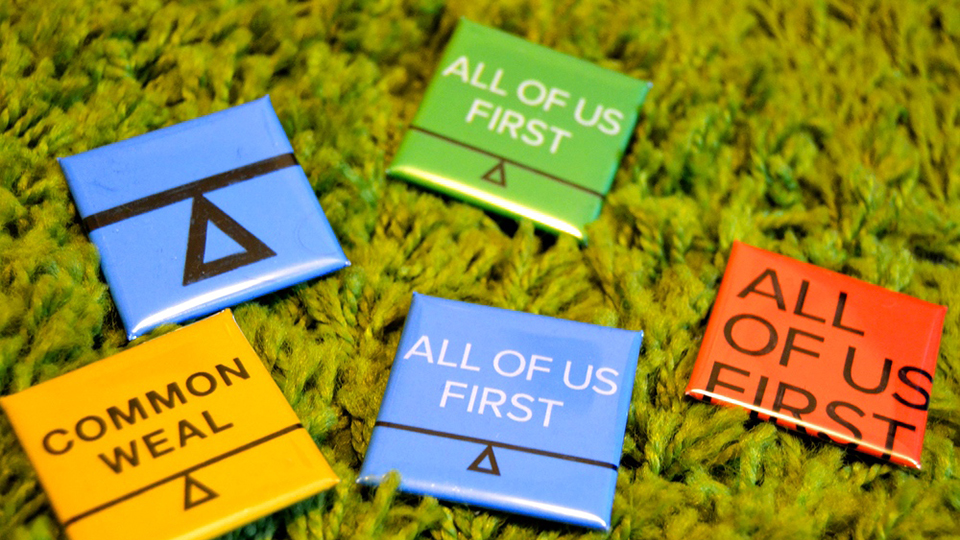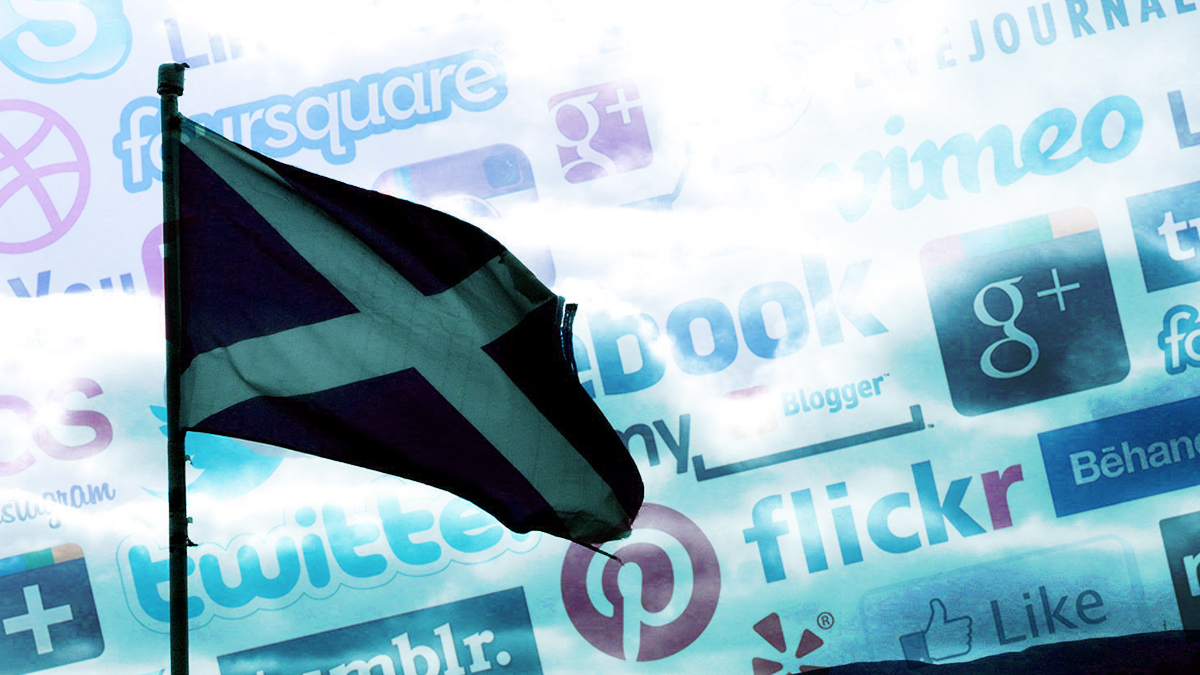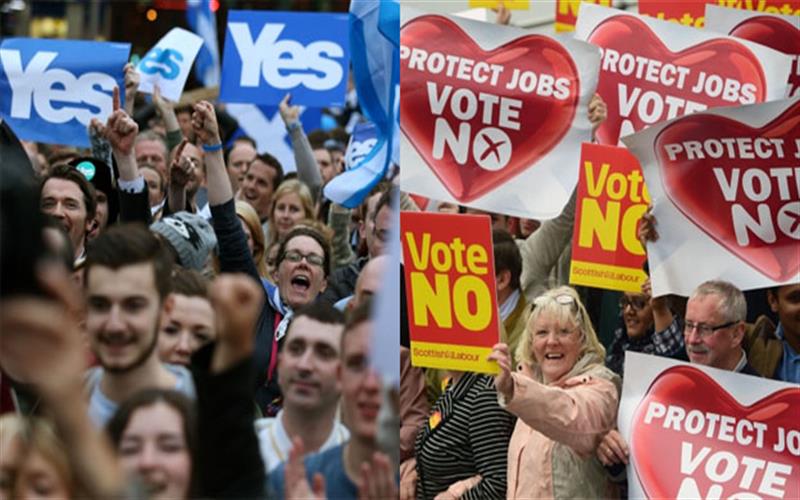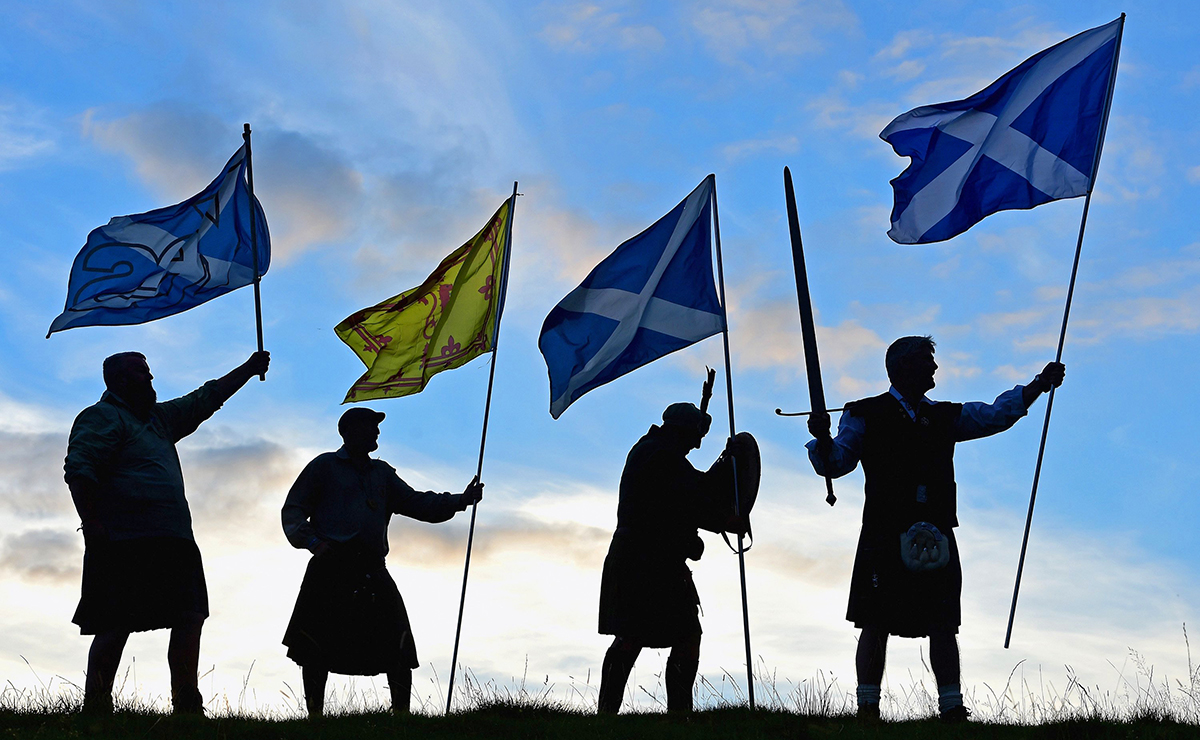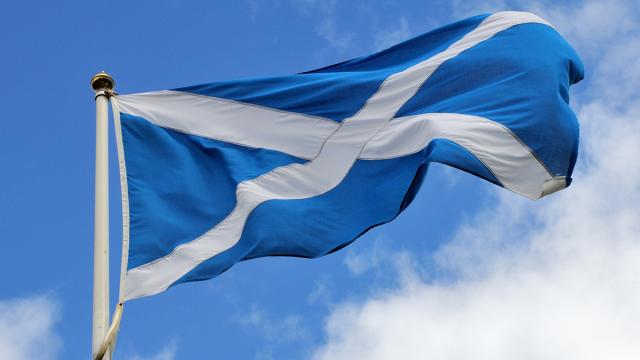
“Not since Iraq have I seen BBC News working at propaganda strength like this,” commented former BBC News editor Paul Mason about the Scottish referendum.
Occupy.com recently examined how Britain’s broadcaster has focused on creating news for the 1% on a broad range of issues, not least the Scottish referendum. Looking solely at the Scotland vote, ample evidence suggests the BBC was far from alone in pushing the Westminster establishment line. Only one newspaper backed the Yes vote, the weekly Sunday Herald, against a corporate media avalanche of No.
Westminster’s cross-party coalition against independence defined itself as “Project Fear,” filled with scare stories projecting imminent doom should the Scots dare to go it alone. The mainstream media seemed willing accomplices in this campaign, evident in review studies looking at media bias and analyzing individual stories that predicted the end would be nigh should Scotland gain independence.
Yet against this backdrop, new Scottish media platforms have thrived. On a recent visit to Scotland post-referendum, I discovered how the region's eclectic, creative, evolving, non-corporate and critical news looks to grow even further into a media for the 99%.
"Three important developments during the referendum campaign were the explosion of online media, the growth of criticism against the broadcasters and press, and the research that shows the structural bias on behalf of the No campaign," explained Scottish journalist Michael Gray.
Gray told me that news sites like Bella Caledonia, Wings Over Scotland and NewsNet Scotland became the main media source for hundreds of thousands of people. Along with blogs and other sites, the new outlets filled a vacuum, reporting positive visions about the ways Scottish society could transition to renewables from oil, push welfare not warfare, and tackle other shifts to drive socially progressive change.
Since the referendum, Bella Caledonia has initiated a "buycott," asking readers to divert their BBC payments towards alternative media to build on the recent momentum. In launching the idea, Bella Caledonia editor Mike Small asserted: “Blaming the media isn't constructive, creating a better one is. So let's do it.”
Despite losing the referendum, the 45% who voted for independence have since grown stronger as a movement, trending often as #the45plus hashtag – a place where the Yes vote and visions of hope triumphed both before and since the vote. Growth in the progressive bid for independence was clear, with over 3,000 people attending a sold-out Radical Independence Campaign conference in November. At one of the workshops, Paul Holleran told a packed room that people could not have a democracy without an effective press – and that the current lack of trust in journalism is a dangerous sign.
Holleran works as an organizer with the National Union of Journalists, Scotland. He spoke about how the Union is pushing for new training schemes designed to create a new generation of critically engaged journalists. Since the conference, that momentum has continued: The National, a mainstream daily newspaper born from the Sunday Herald, now also calls for an independent Scotland.
Reflecting on the post-referendum Yes side, Michael Gray said, "It´s probably the only campaign I have followed where the people who lost have seemed strangely triumphant."
He added: "I was devastated after the result, but there was a strange resilience of so many in the campaign, leading to a surge of memberships [of the Yes parties and organizations] as people felt they had to take a positive action."
Another journalist, Ben Wray, suggested that the mainstream media treated the independence campaign the same way it approaches "business as usual" politics and finance. For instance, if a bank causes a scandal, journalists often turn to the chief executive for an interview rather than speaking to social campaigners or academics.
"But there was a shift in the referendum campaign," Wray said, "with so many people engaged on a grassroots level it became clear that all people’s voices were not coming out.”
Wray and Gray now write for Common Space, a new media project that developed from Common Weal, the think-tank which produced one of the cutting edge visions for a progressive Scotland. I visited Common Space's Glasgow office and interviewed its editor, Angela Haggerty, and journalist Liam O´Hare to find out about the publication's next steps.
"Common Space is an unusual model, growing out of a think-tank. It has come about to meet the people's need for better news services," said Haggerty. "For this it has an editor and a team of four full time writers, so it has created jobs, too."
The news organization is supported by a surge in funding, which Common Weal received after the referendum. "This professionalization of Scotland's new media is happening across the board, including a new radio station and Bella Caledonia paying [its] writers. This approach will raise the credibility even further," she adds. "Paying more writers means raising the bar. All this is massively exciting for Scotland."
Haggerty says the ethos of Common Space will align Common Weal, but with an editorial independence that allows it to look critically at all issues, including the think-tank and the independence movement itself. It will contrast greatly to the current run of corporate news.
"The mainstream media often focuses on issues they are pitched in press releases, from corporations, political parties and so on. These dominate the news desk. In effect, this becomes an endless culture of chasing these press releases – with little space for real investigative journalism," said Haggerty.
This means social justice issues such as fracking and the Transatlantic Trade and Investment Partnership (TTIP) are often misrepresented or neglected completely.
"There is a clear trend of corporate news siding with the establishment," said O'Hare, meaning that "groups that are marginalized and oppressed are not given a voice, and we need to highlight these people. Common Space will give a platform to people challenging the status quo in Britain and across the world."
Current alternative media in Scotland, like Bella Caledonia, focus on in-depth analyses and commentary pieces. But Common Space aims to push the scope of alternative news with a rolling news platform – an ambitious plan launching in the New Year, which will contain a policy section that promotes and critiques radical, alternative ways of financially and politically organizing society.
Moving forward, the group also seeks to run a broadcast channel with events listings, and even a shop. In addition, it will have a People's Space, envisioned as a new social media platform allowing people to connect for ideas and skills exchange.
Since the referendum, other local Common Weal groups have sprung up around Scotland, organically and autonomously. Many are already envisioning a "tour" to link these groups together. For example, the Common Weal group in North Edinburgh has already set up a cafe, and another is planned in Glasgow.
Both the surge in public interest and the ambition of the Common Weal project reflects the broader movement's hope for a progressive Scotland, despite the No vote. Haggerty echoed this optimism.
"Since the referendum it has been so positive. People believe the change has already happened," she said. "A lot of people now believe independence will be a formality. The 45% result is such a large movement of people. It's gone too far and is moving too fast: it is unstoppable."
3 WAYS TO SHOW YOUR SUPPORT
- Log in to post comments

